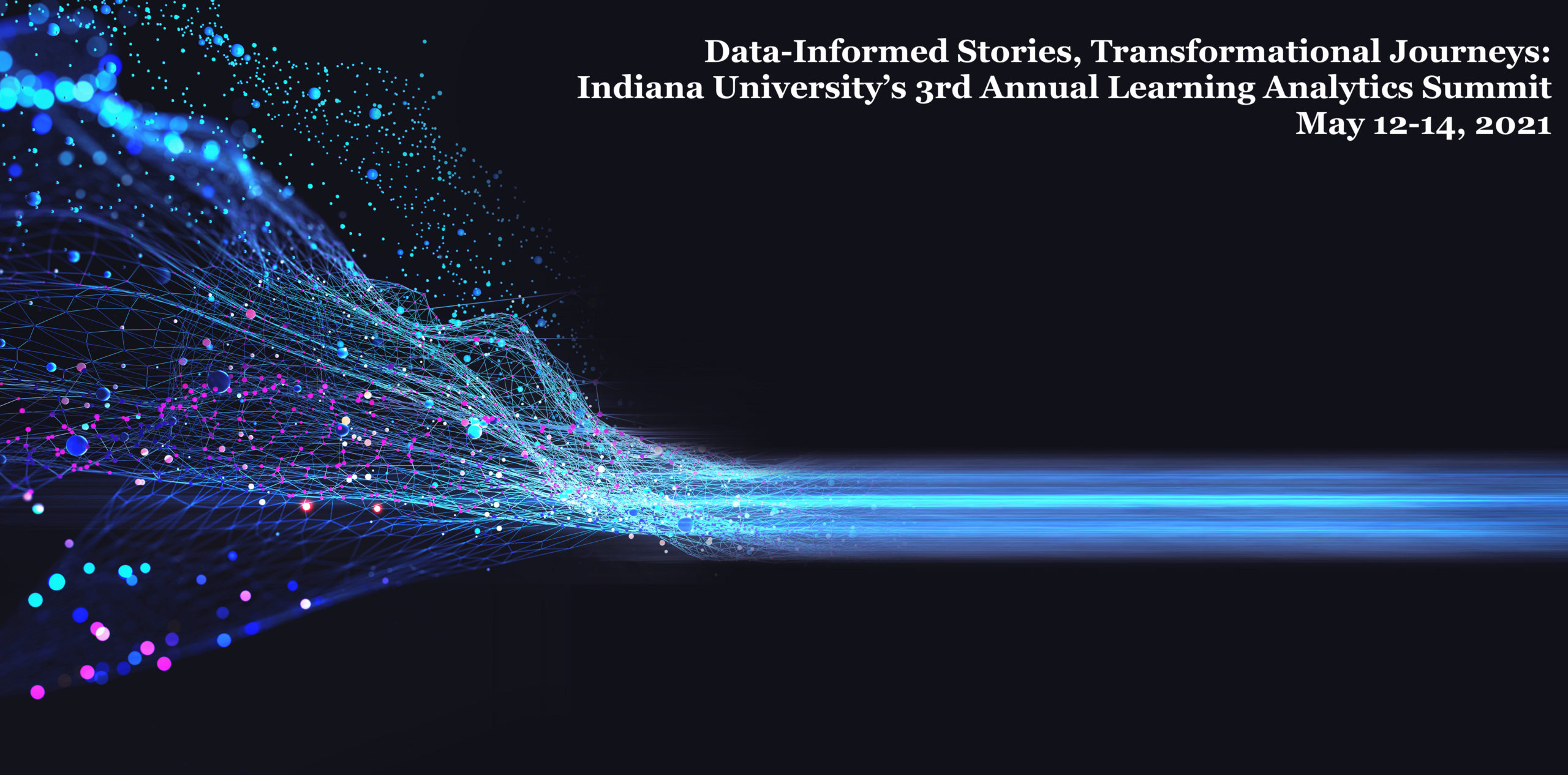
By: Annabella Melvin
Indiana University’s Center for Learning Analytics and Student Success (CLASS) recently hosted “Data-Informed Stories, Transformational Journeys: Indiana University’s 3rd Annual Learning Analytics Summit” on May 12-14, via Whova.
According to George Rehrey, Director of CLASS, the purpose of the annual summit is to bring together faculty, staff, and administrators who share an interest in fostering student success through the use of big data and analytical tools.
Featured speaker Michael Dennin is the Vice Provost for Teaching and Learning, Dean of Division of Undergraduate Education, and a Professor of Physics & Astronomy at the University of California, Irvine. Dennin’s research focuses on systems that exhibit emergent properties, like the behavior of complex fluids as well as the complex dynamics of biological systems.
On Friday, May 14th, Dennin delivered the keynote address “Learning Analytics for Long-term Faculty Culture Change”. Dennin’s presentation centered around structural and strategic elements that are combined to allow the University of California, Irvine to focus on the relationship between learning analytics and faculty culture at the institutional level.
Recent examples of the limited focus on faculty culture were utilized in order to address how it influences the attitudes of faculty toward their role in student success, like faculty facing dashboards that provide faculty richer information on the students in their courses.
Dennin considered elite and non-elite institutions, various selection points, and the highly artificial selection points of gateway courses while discussing the difference between education and selection. Dennin said, “The university has evolved to a particular structure based around selection and gatekeeping, not education.”
Dennin also argued that the transfer function is not fixed but actually evolves based on the input state of the university. Diversifying this input state offsets the transfer function and makes it impossible for it to achieve its original goals. However, Dennin suggests that intentionally changing the transfer function is a necessary positive, as it is critical to support a diverse education.
“As we change the transfer function, I would argue that we are able to naturally support a diverse set of students, we do fill in an critical gaps if they exists, but more importantly we continue to build on their core strengths, and then, by the end, we’ve increased independent learning,” said Dennin.
Recordings from the summit may be found on our Kaltura page, the CLASS website, and the WHOVA platform. For more information on learning analytics and upcoming events, visit https://class.indiana.edu/events/class-lasummit.html or contact George Rehrey at grehrey@indiana.edu.